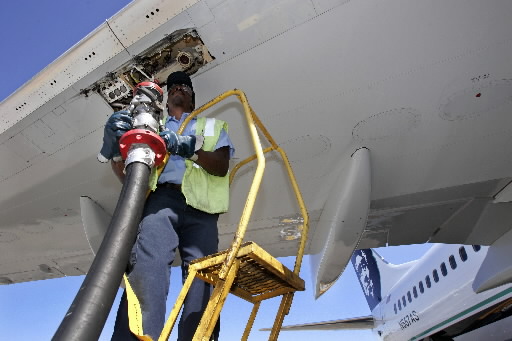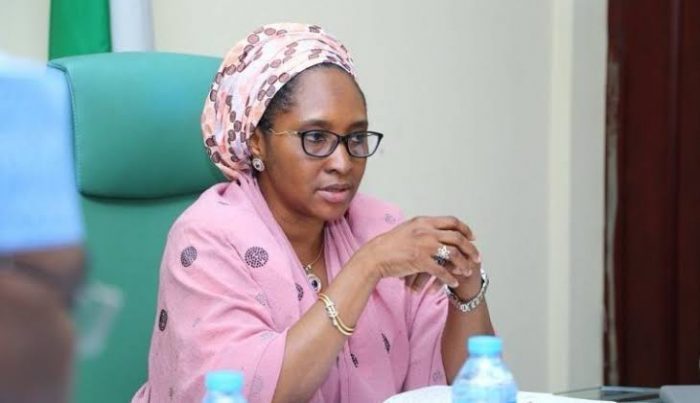The Federal Competition and Consumer Protection Commission (FCCPC) has ordered airline operators to immediately discontinue the current implementation of airfare increase pending the outcome of its investigation.
The Executive Vice Chairman of FCCPC, Mr Babatunde Irukera, said this in a statement on Wednesday in Abuja.
Irukera said the interim order was in line with Sections 17(a),(e),(l),(s),18(3)(a), 157 and 158 of the FCCPAct.
Irukera said that the commission’s investigations revealed that airline operators in supposedly association meetings discussed multiple industry-wide issues; particularly challenges experienced by their members.
He said that credible information revealed that while attendees at the meeting did not arrive at a consensus, the meeting ended in a resolution that encouraged or consented to the coordinated conduct.
According to him, the FCCPA prohibits conduct or any coordination between competitors including on the platform of trade associations.
”Specifically, Section 107 (1)(a) forbids competitors from fixing prices, while Section 108 prohibits any conspiracy, combination, agreement or arrangement between competitors in any manner that unduly restrains or injures competition.
”Coordination in increasing prices otherwise known as the cartel is an unambiguous infringement of the FCCPA.
”The current and prevailing Nigerian Civil Aviation Regulations (Air Transport Economic Regulations) in Regulation 18.15.2 (i) and (iii) expressly prohibits airlines from engaging in any contract, arrangement, understanding, conspiracy or combination in restraint of competition.
”This includes directly or indirectly fixing a charge, fee, rate, fare or tariff and any collusive action.
”The commission in addition to engaging the relevant stakeholders is entering and dispatching interim orders under Sections 17(a),(e),(l),(s),18(3)(a), 157 and 158 of the FCCPA.
”Prohibiting the performance or continuation of any agreement or arrangement associated with, or resulting from discussions, deliberations, debates, argument or resolutions of/at any meeting.
”Regarding any increase in airfares and or any conduct not necessarily directly in compliance, but in response to changes in the market on account of compliance by others,” he said.
Irukera enjoined scheduled domestic airline operators to ensure strict and prompt compliance with the interim order pending the outcome of the commission’s investigation.
The News Agency of Nigeria reports that domestic airline operators resolved to increase airfares by 100 per cent with effect from March 1.
The resolution adopted by all the domestic operators will peg the least economy ticket at N50,000.
Airfares hike is long overdue – Airline operators
Meanwhile, some domestic airline’ executive officers have said that the airfares hike is long overdue in Nigeria.
The officers, who made the assertion during separate interviews on Wednesday in Abuja, said some charges to be paid by the airlines have skyrocketed while most maintenance services are done through foreign exchange.
Managing Director of Aero Contractors, Capt. Mahmoud Abdullahi, who said that the airfare hike was overdue, maintained that the fuel price kept increasing while some service providers had increased their tariff by more than 250 per cent.
“The airline fare hike is long overdue, as you are aware of the increase in the fuel price and forex.
“Additionally, of recent, the service providers (Sahcol and Nahco) increased their tariff by 250 to 300 per cent; at the international airport, it is even 500 per cent increase.
“Fares that you see now have always been in the airlines’ inventory. What airlines do is to close lower bucket fare and open next fare bucket, but those lower fares are still in airlines inventory, “ he said.
According to Abdullahi, though airlines may experience low patronage, they have to survive.
The managing director said that every move by the airline was in the interest of safety.
He pointed out that airline income was in naira while most of their expenditure was in forex.
“Regulators play a very good role in pricing. If an airline prices its ticket so low, regulators have to investigate to find out how this airline can meet its obligations with the price that it is charging.
“They have to make sure the airline does not cut corners on maintenance,“ he said.
Abdullahi explained that no airline would intentionally delay or cancel flights, but due to variables including; weather, technical, airport facilities, sunset airport among others.
The Azman General Manager, Mr Suleiman Lawan, who also spoke with NAN, said that it had reached a time when the airfares could no longer remain the same as they used to be.
According to him, aircraft handling is different from other transportation systems.
He noted that tickets prices started from N27, 500 up to N35, 000 before it was increased to a minimum of N50, 000.
“Every day you have to plan for importing spare parts, which is in USD and you cannot get such money from the government. It’s only from the parallel market. Also, A-jet fuel is at a higher price.
“Handlers have increased their charges, even the government has increased its charges. So, based on the above explanation how can airlines survive the situation.
“Apart from that, they have so many responsibilities to handle, such as; payments of salaries, aircraft checks out of Nigeria, which they have to get the money from the same parallel market,“ he said.
Lawan urged the government to assist airlines in some responsibilities.
According to him, the airlines are looking for a way to have a breakthrough not even making profits.
The Max Air Executive Director, Mr Harish Manwani said the airlines ought to increase the fare to cope with the daily expenses to survive.
The executive director noted that Max Air hardly delayed or cancelled flights except for extraordinary weather conditions.
“Even with low turnout, the airline has its flights flown the routes across the country,“ he said.
An Aviation Expert, Group Capt. John Ojikutu Rtd, urged the public and the responsible authorities to have interest in the airlines` makeup areas for the sustenance of their operations.
Ojikutu said he had expected the hike in the airfare about 10 years ago.
“Selling air ticket at a naira rate less than $100 for a flight of one hour makes no economic sense in Nigeria where over 20 years ago $100 was the fare.
“Aviation fuel was being refined in the country around 1999, whereas today we have been importing fuel for well over 10 years.
“Naira exchange has grown steadily from N180 to N360, N400, and now over N500 to a dollar and our airlines are selling tickets at N26,000 or in rare cases N30,000 even when we are importing fuel,“ he said.
Some air travellers at Nnamdi Azikiwe International Airport (NAIA), who also spoke with NAN, appealed to the Federal Government to intervene in the recent increase of airfares.
According to them, the Nigeria Civil Aviation Authority (NCAA) is responsible for approving the tariffs of fares on the tickets of each operator submitted to it after due consideration.
“ That include the airlines’ operators, airports operator (FAAN) ground handling companies, among others. Determining the cost of fares and charges by operators is the designated responsibility of the NCAA.


